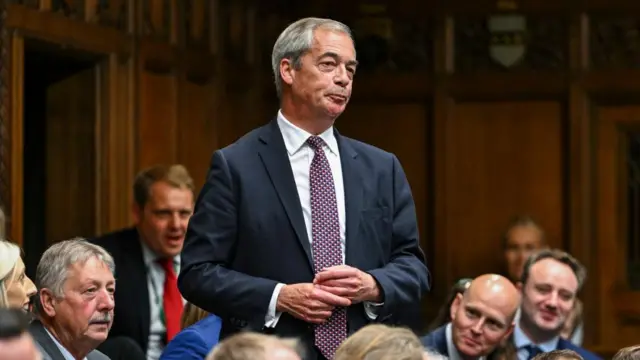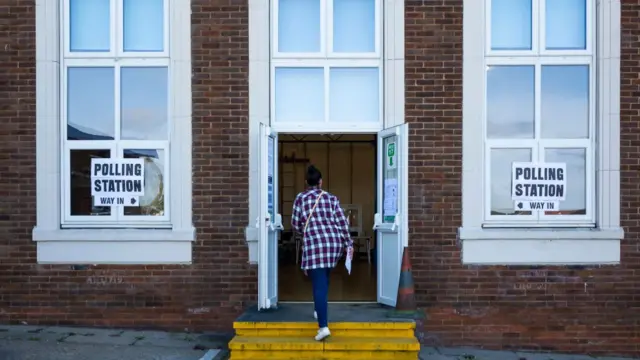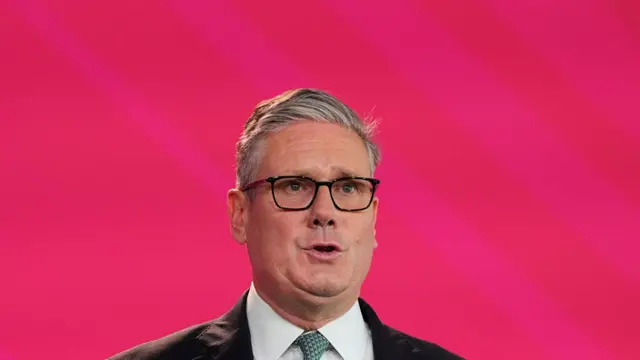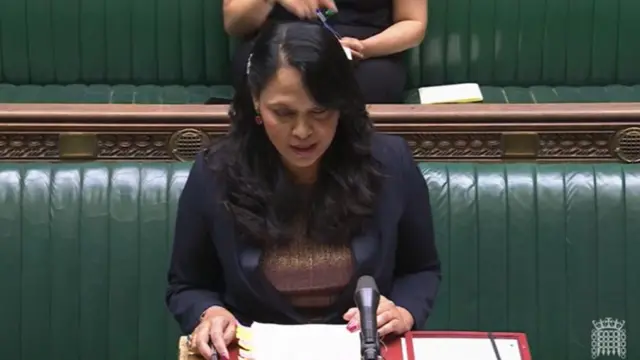Farage says he's against lowering voting agepublished at 11:50 BST 17 July
 Image source, PA Media
Image source, PA MediaNigel Farage, leader of Reform UK, says he doesn't support lowering the voting age to 16 "even though we get lots of votes".
Speaking to ITV News, Farage says someone shouldn't be able to vote in an election unless they're able to stand as a candidate. A candidate must be at least 18 to stand for election.
"I'm really encouraged by the number of young people that are coming towards us," he adds.




